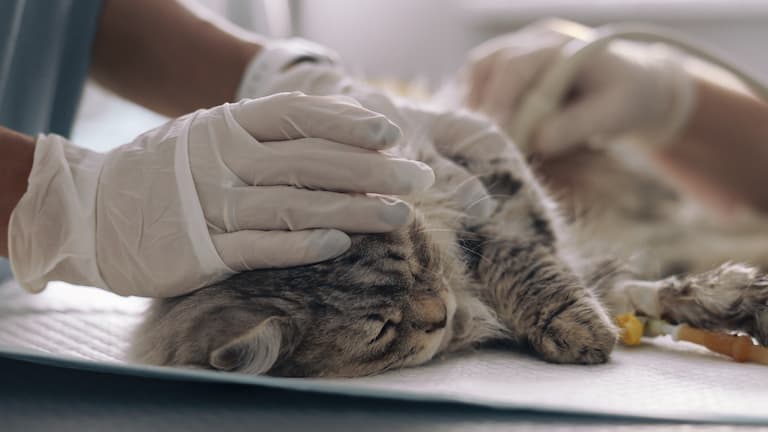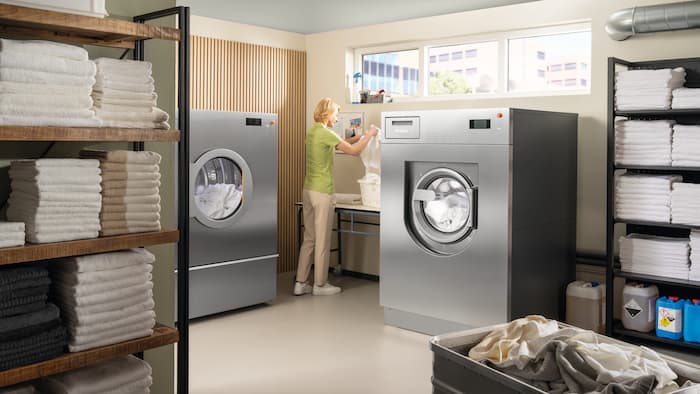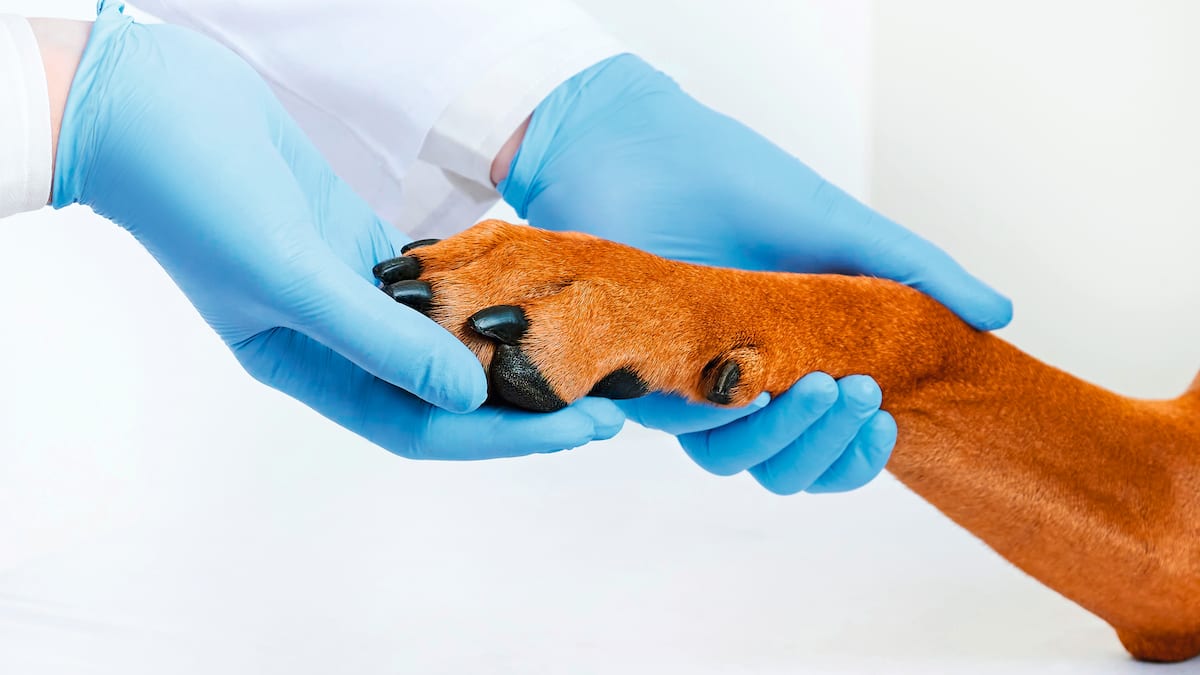
Enhancing animal care with streamlined workflows and processes
1. Create streamlined, effective workflows
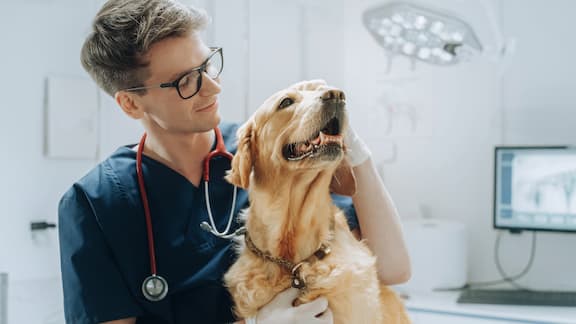
Start by breaking down your instrument cycle into different phases. For example, you could identify the following steps:
- instrument handling after use
- chemical pre-treatment
- cleaning and disinfection
- drying
- sterilisation
- inspection
- storage
- delivery to treatment room
Make sure that each phase is performed in a dedicated space, with dedicated equipment and by trained staff. For example, sterilised instruments should not be laid out in the proximity of instruments that are yet to be washed to avoid cross contamination. Likewise, ensure that you have dedicated trays for collecting instruments after surgery, chemicals for pre-treatment, high-quality reprocessing machines, and appropriate storage systems. Carry out frequent inspections to avoid equipping treatment rooms with unsuitable instruments. This saves time and contributes to successful clinical operations.
2. Invest in tailored, long-term solutions
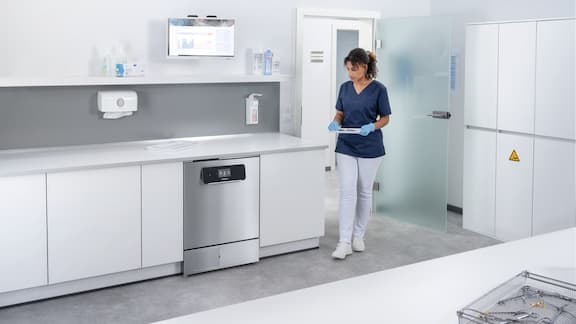
There is no one-size-fits-all. When choosing equipment for instrument reprocessing, partner with a provider that can tailor solutions to you needs. This can involve writing ad-hoc cycle programmes that best adapt to your reprocessing routines, creating a custom service plan, or pairing your machines with software that supports you with process documentation and cycle monitoring. Washer-disinfectors such as the ones from Miele Professional also offer modular basket systems, with inserts and components that allow you to customise each load flexibly, adapting it to your needs.
Make sure your washers and sterilisers are investments that last. Opt for quality and comprehensive maintenance packages that can support your daily work. This will avoid downtime due to faults and ensure continued business for your clinic.
3. Never underestimate laundry
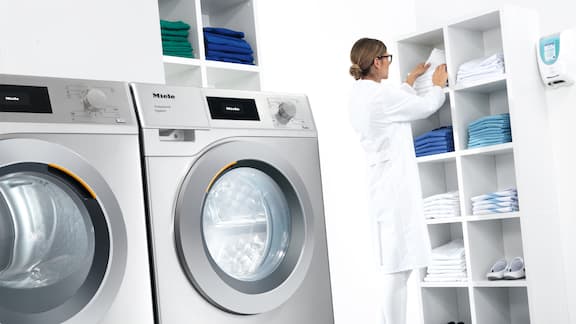
Alongside instrument reprocessing, laundry is another non-negotiable hygiene step that you need to account for. Unless bedding and staff uniforms are ready when they are needed, delays will occur, causing inconvenience, extra costs and potential cross contamination.
Make sure you invest in laundry machines with a capacity that meets your needs. Sales advisors will be able to carry out precise calculations to work out which machine size is best suited to your needs, helping you optimise your workload and minimise downtime. At Miele Professional, the laundry machines recommended for veterinarians span from 7 to 20 kg so there is a wide range to choose from.
Professional laundry machines such as the Miele Professional Little Giants offer hygiene programmes especially designed for medical environments. This enhances safety across your facilities. The Miele Professional dryers such as those from the Benchmark series are also particularly suitable for textiles exposed to animal hair. Thanks to a special filter system, you can make sure that animal hair no longer damages your machines causing unnecessary delays.
4. Consider digital solutions
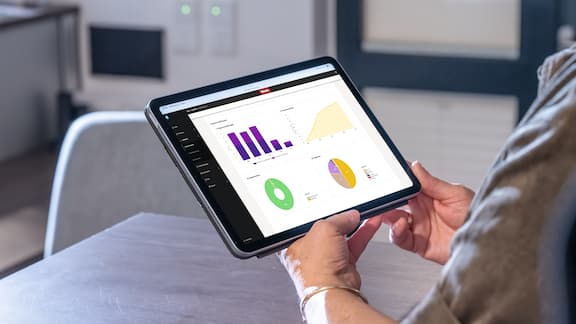
Most professional devices, including washer-disinfectors, sterilisers and laundry machines, are now commonly connectable to process documentation software for additional traceability of cycles runs.
Look for software that helps you streamline operations further. Solutions like Miele MOVE Connect, for example, allow you to monitor machine status online, from anywhere, so your staff timetables can be optimised between reprocessing shifts. This will help you to free up time for staff and reduce the stress associated with overworking.
Miele MOVE Connect alerts you to machine faults when they occur and provides automated service calls with detailed error diagnosis to ensure prompt interventions. Miele MOVE Connect also provides insights into machine performance with user-friendly data visualisation, so you can create strategies for efficiency for your teams.
Think 360Pro
Hygiene systems in veterinary practices can only be effective if they are implemented with a holistic approach. Just as all phases of the instrument cycle are interconnected, all activities that contribute to maintaining hygiene in your practice are also linked.
At Miele Professional we have created 360PRO for Vets, an integrated system solution that delivers on all aspects of reprocessing and hygiene for veterinary medical equipment.
Discover below how our solutions can help support your practice.
- 1.Internal Knowledge
